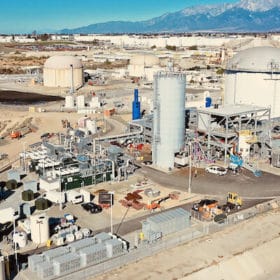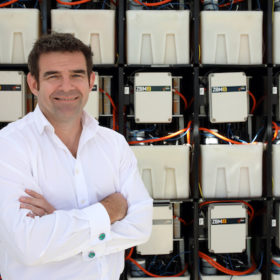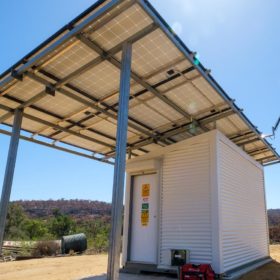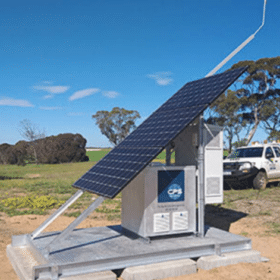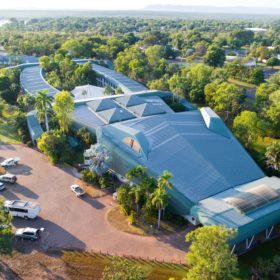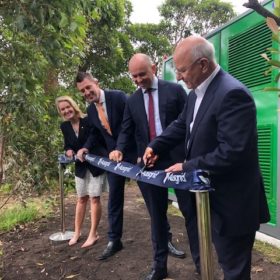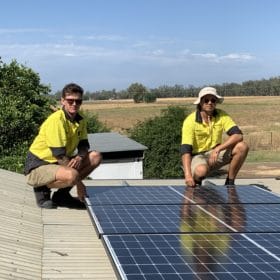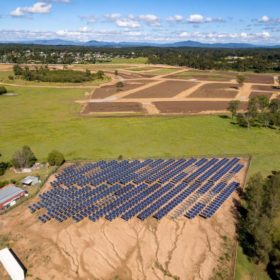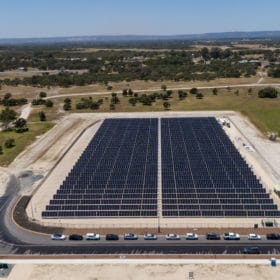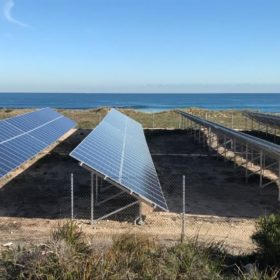Redflow expands to US market with largest global battery sale yet
Redflow has signed its biggest global battery deal yet after agreeing to supply Californian biowaste tech firm Anaergia with a 2 MWh energy storage system. Redflow is hoping the US$1.2 million agreement for 192 of its zinc-bromine flow batteries will serve as a foundation for US market expansion.
Brisbane-based flow battery company secures its largest sale at $1.5 million
Australian company Redflow has made its single largest sale, supplying 192 zinc-bromine flow batteries to waste conversion specialists Anaergia for US$1.2 million.
WA deploys stand-alone power systems at properties affected by Perth Hills bushfire
Western Australia has officially extended the reach of its new darling: stand-alone power systems, or SAPS. In a state first, Government-owned network services provider Western Power has deployed units at two Perth Hills properties following bushfires earlier this month.
WA government makes $259 million worth renewable promises ahead of state election
With a state election looming and a Liberal Opposition eager to embrace renewables, Western Australia’s McGowan government has announced a $259 million renewables-focussed package in a bid to retain power and primacy in the progressive space.
Solar and storage to take over from uranium mine for Kakadu rejuvenation
The Ranger Uranium Mine, completely enclosed within the World Heritage-listed Kakadu National Park, ceased production in January 2021 after years of financial losses. Now, as part of a multi-million dollar rejuvenation of the Park, a solar and battery storage hybrid project is set for development at the town of Jabiru, a project which will help the town replenish itself as a tourist hub for one of Australia’s greatest treasures.
Ausgrid launches Sydney’s first community battery, with more to come in two-year trial
New South Wales network operator Ausgrid yesterday launched its first community battery in Beacon Hill, north of Sydney. It is one of three community batteries being installed across Sydney allowing solar customers to store their extra energy at no additional cost.
Community solar is fighting the good fight against gas fields in NSW’s Northwest
Of the myriad tensions upon the energy transition to renewables it is perhaps the ability of solar and energy storage to be distributed among the people that has threatened the powers that be most overtly. And so, in NSW’s northwest where the federal government has pushed through Santos’s Narrabri coal seam gas project, perhaps it is community green energy non-profit Geni.Energy that is best able to show just how unnecessary such a project is.
International partnership to develop solar hydrogen plant at QLD college and golf academy
The Hills International College and Golf Academy in Jimboomba, Queensland (QLD), which boasts former World Number 1 Jason Day as an alumnus, is partnering with Sydney-based renewable energy outfit Energy Estate to develop the Jimboomba Renewable Hydrogen Plant.
The solar allure of WA’s new-model business park
Peel Renewable Energy is about to energise its 1.2 MW solar farm, which forms the heart of a fresh, phased microgrid approach to industrial-estate development. That is, grid infrastructure remains small, while the renewably powered microgrid grows to meet the needs of incoming businesses.
Carnegie’s Garden Island Microgrid back online
Carnegie Clean Energy’s Garden Island Microgid, which supplies energy to the HMAS Stirling Navy Base, has successfully recommenced operations after a brief disconnection period to allow for Navy upgrades to its electricity system.
